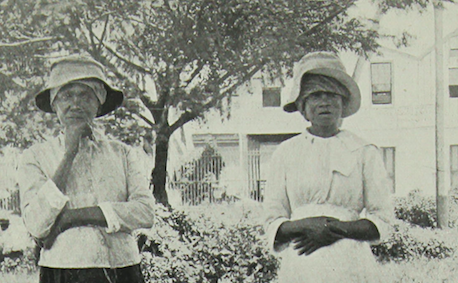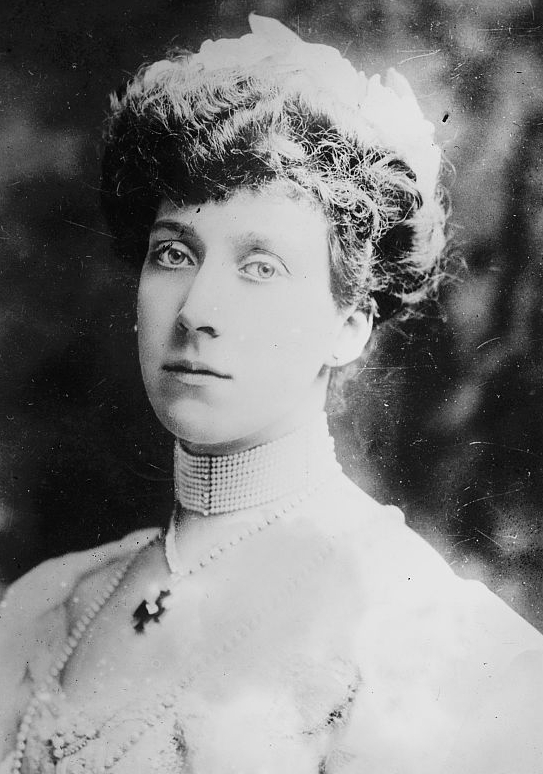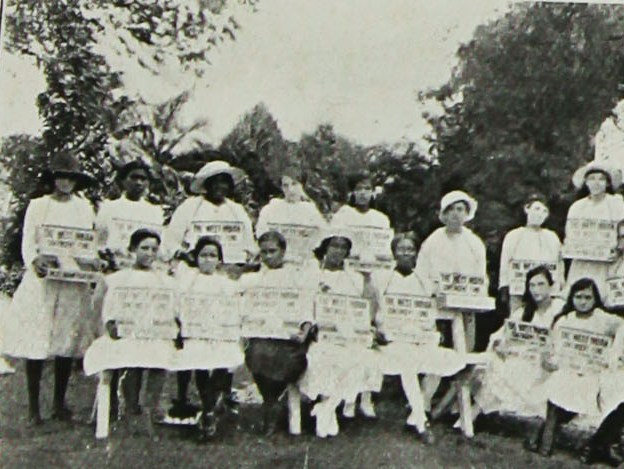Women in War
Caribbean women supported Britain’s war effort in a variety of ways. All islands and territories in the British West Indies saw women gather together to help aid the war effort domestically; this was done by fundraising for war charities like the Red Cross, by organising supplies for the front and by encouraging enlistment at home. Necessary provisions for war like medical supplies were also provided by ladies committees and women’s groups in the region. Each island had a committee set up by women to cater to the local contingent or to support the war effort. Their activities varied depending on the needs of the time and duties ranged from knitting thousands of garments to preparing gifts to send to troops. Caribbean Women also contributed by virtue of their work as labourers, many of whom donated their wages for the war effort despite their economic situation and social status.

The West Indian Contingent Committee’s Ladies’ Committee was established in 1915 as the women’s wing of the war sub-committee. The Committee’s members were primarily aristocratic Englishwomen whose links to the Caribbean were commercial or through lineage, with some members being descendants of William Wilberforce for example. HRH Princess Marie Louise, granddaughter of Queen Victoria, was Royal Patron of the Ladies’ Committee. The princess supported the West Indian war effort through fundraising on behalf the committee and demonstrated a particular enthusiasm by consistently attending meetings and hosting fundraisers for the cause. The Committee raised tens of thousands of pounds for West Indian troops, some of whom were welcomed in the country homes of these aristocratic supporters.

Fundraising on the West Indian islands was driven by women and was consistent throughout the war, with each island sustaining efforts throughout the conflict despite varying economic circumstances. The work of the Jamaican Ladies’ Committee was so successful that the local government considered making them permanent when the war came to a close. In Trinidad, one women’s group raised nearly £30,000 independently. From the confines of the islands, ladies committees allowed West Indian women to participate in the struggle of the wider British Empire during the First World War and contribute to the wider war effort.
